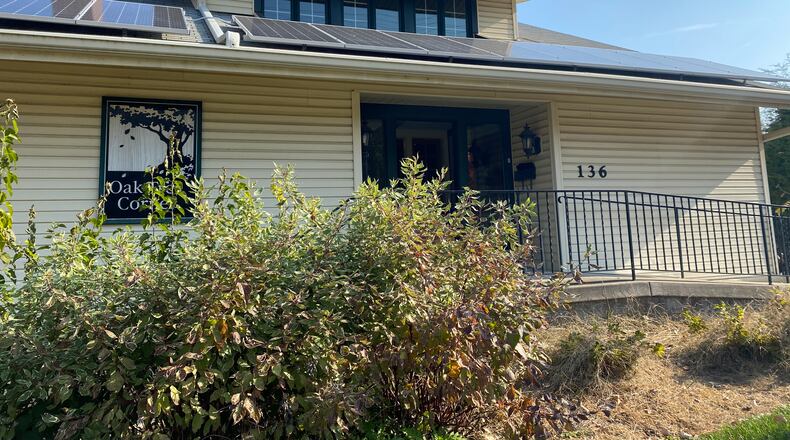RE-volv at University of Dayton also has worked to install solar panels in 2018 at the Mission of Mary Cooperative, a nonprofit that works on eliminating food deserts in east Dayton, and in 2020 at East End Community Services in Twin Towers, which connects people to community resources and is also involved in fighting the opioid crisis.
RE-volv is a national nonprofit based out of San Francisco that installs solar panels at nonprofits, and the nonprofits slowly pay back RE-volv the cost of the solar panels over 20 years. The solar panels are guaranteed to last 25 years, said Sydney Muñoz, community engagement coordinator for RE-volv, and could last up to 40 years.
RE-volv works with university students to coordinate installing the panels and works with local solar panel companies to install them. It has a chapter at UD.
In the last 10 years, Muñoz said the organization has completed 46 projects, installing solar panels at nonprofits.
Vicki Braun, director for Oak Tree Corner, said sustainability was the largest factor in agreeing to work with Re-volv on the solar panel project.
“The response from the teens and then our young volunteers, just, oh, you’re so cool,” Braun said. “They were very impressed.”
Local group Ohio Power Solutions installed the solar panels.
Braun said they are also guaranteed some savings from installing the solar panels, though she said she expects it to be a few hundred dollars and does not know the exact savings.
Muñoz said many nonprofits do not get the same tax cuts that the rest of the world does for installing solar panels, and often don’t have the capital to install them. Muñoz said nonprofits typically save about 15% on their electricity costs.
When the nonprofits pay back RE-volv, Muñoz said the money goes directly back into paying for new solar panels elsewhere.
Patrick Hoody, a UD engineering student, said the organization is currently working on a proposal for another local cooperative to see if solar panels will be viable for them. He said the organization hopes to continue to get solar panels to other non-profits and cooperatives in the Dayton area soon.
People can reach the organization by emailing revolv@dayton.edu or filling out an interest form on RE-volv’s website.
About the Author

